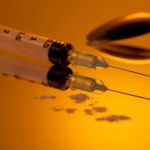Stopping the enablers
As an epidemic of heroin overdoses surges, parents cry out for the tools to save their families
Standing up to a child who tries to hide a drug addiction goes against many of our parental instincts. As a surging epidemic of heroin and other opiate addictions blister many regions, adults are crying out for the tools to save their families.
I live in southeastern Massachusetts, where opiate drug abuse and overdoses are rampant. Despite the relative prosperity many enjoy here, the Bay State is among many places where overdoses have more than doubled during the past decade, due both to heroin and prescription opiates. Just in the small town of 12,700 next to mine, in Kingston rescue crews responded to 42 overdose calls last year, and there were two fatalities.
While public awareness of this scourge is growing, less forthcoming are resources for parents to help their sons and daughters confront the cycle of addiction, and begin treatment. Certainly there is an acute shortage of treatment centers themselves. And some parents and advocates criticize short-term steps like 30-day programs ordered by the courts, which they say are not enough to initiate recovery.
Yet there also exists a kind of disbelief gap among parents who find themselves ill-equipped to deal with this crisis. Thrust into dealing with a teenager or young adult who lies, steals, sneaks out to get high, cuts himself off from family, makes perilous choices with ragged new friends, sometimes leapfrogging from prescription meds supplied by pals or by theft to stronger opiates—up against all this, many adults are confounded.
“A parent’s natural instinct is to give more—more money, chances, support,” says one father. “It’s unnatural. But the addict must hit rock bottom and take steps himself.”
Across large areas of our state and others, clusters of adults who have endured addiction trials continue reaching out to other parents as peers, trying to help them bridge this divide. As one father from Cape Cod with a son who is three years into his recovery told me, some adults need to be educated to say no. “Stop enabling your son or daughter,” he says. It was a hard lesson for him to accept.
Doing that may involve some tough love, which is not always so straightforward to dispense. “A parent’s natural instinct is to give more—more money, chances, support,” says Dave, which is not his real name. “It’s unnatural. But the addict must hit rock bottom and take steps himself.”
There is often denial—at least by one parent, which may lead to fractures with the other demanding they take a harder line. There is the fallout on other siblings who see the family unit being torn apart: fights, blame, and widening cracks.
There is also the stigma attached to having a child addicted to drugs. A crushing shame as friends and relatives scatter, driving the surviving family members further inward.
Lisa Murphy’s teenage daughter Tina got hooked on Percocet that was prescribed when she had six teeth taken out and her braces fitted. Her mom had no idea the pills were addictive. Murphy left them on the counter “and expected her to take them as she should. That’s where it all started.”
What followed was several years where Tina abused prescribed meds and lurched into new ones. She stole pills from a boyfriend’s father, and after a back injury became hooked on another pain reliever, then began mixing alcohol with other drugs—leading to heroin. “There were instances where she and her boyfriend were beating each other up,” her mother says. “All of that is not normal. So a parent is left with, ‘I know something is going on.’ No one has to tell me this is not normal.”
To continue reading, please click here to see Ken’s full blog on Psychology Today.
One suggested resource for parents is Learn to Cope, a peer-led support network with many groups across Massachusetts and many other states.

